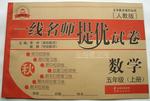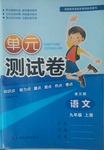
| |||||||||||||||||||||||||||||||||||||||||||||||||||||||||||
 Ò»ÏßÃûʦÌáÓÅÊÔ¾íϵÁдð°¸
Ò»ÏßÃûʦÌáÓÅÊÔ¾íϵÁдð°¸ Ñô¹âÊÔ¾íµ¥Ôª²âÊÔ¾íϵÁдð°¸
Ñô¹âÊÔ¾íµ¥Ôª²âÊÔ¾íϵÁдð°¸
| Ä꼶 | ¸ßÖÐ¿Î³Ì | Ä꼶 | ³õÖÐ¿Î³Ì |
| ¸ßÒ» | ¸ßÒ»Ãâ·Ñ¿Î³ÌÍƼö£¡ | ³õÒ» | ³õÒ»Ãâ·Ñ¿Î³ÌÍƼö£¡ |
| ¸ß¶þ | ¸ß¶þÃâ·Ñ¿Î³ÌÍƼö£¡ | ³õ¶þ | ³õ¶þÃâ·Ñ¿Î³ÌÍƼö£¡ |
| ¸ßÈý | ¸ßÈýÃâ·Ñ¿Î³ÌÍƼö£¡ | ³õÈý | ³õÈýÃâ·Ñ¿Î³ÌÍƼö£¡ |
¿ÆÄ¿£º¸ßÖÐÓ¢Óï À´Ô´£ºº£µíÐǼ¶Ìâ´ó²Î¿¼£¨¸ßÒ»ÉÏ£© ÌâÐÍ£º050
ÔĶÁÀí½â
A¡¡¡¡The national weather map shows a high pressure area all along the eastern coastline which brought them very pleasant, sunny weather from New York to Florida£®But showers (ÕóÓê) and thunderstorms (À×±©Óê) are appearing from the Ohio River all the way south to the Gulf Coast.
¡¡¡¡By far the worst of the storms has appeared in and around Texas. Some Texas stations are reported up to fifeeen inches of rain in a twenty-four- hour period with high winds and thunderstorms.
¡¡¡¡Heavy amounts(×ÜÁ¿) of snow were reported in the Rocky Mountain region with recorded cold temperatures in Denver and Boulder. As much as a foot of snow has fallen in some of the mountain stations.
¡¡¡¡In contrast, temperatures in Arizona and the desert Southeast went over the one - hundred - degree mark again today under bright, sunny skies.
1£®This weather report is about ________.
[¡¡¡¡]
2£®It is sunny in ________.
[¡¡¡¡]
3£®Along the Ohio River, the storms are ________ than that in Texas.
[¡¡¡¡]
4£®The cold temperature in Rocky Mountain region is ________.
[¡¡¡¡]
A£®recorded
B£®the same as usual
C£®the lowest in its recorded history
D£®not talked about
5£®The one hundred degree mark of temperature must ______.
[¡¡¡¡]
²é¿´´ð°¸ºÍ½âÎö>>
¿ÆÄ¿£º¸ßÖÐÓ¢Óï À´Ô´£º101ÍøУͬ²½Á·Ï°¡¡¸ß¶þÓ¢Óï¡¡ÈËÃñ½ÌÓý³ö°æÉç(пαêA¡¡2002-3Äê³õÉóͨ¹ý) È˽̰æ ÌâÐÍ£º014
| |||||||||||||||||||||||||||||||||||||||||||||||||
²é¿´´ð°¸ºÍ½âÎö>>
¿ÆÄ¿£º¸ßÖÐÓ¢Óï À´Ô´£º101ÍøУͬ²½Á·Ï°¡¡¸ß¶þÓ¢Óï¡¡ÍâÓï½ÌѧÓëÑо¿³ö°æÉç ÌâÐÍ£º050
| |||||||||||||||||||||||||||||||||||||||||||||
²é¿´´ð°¸ºÍ½âÎö>>
¿ÆÄ¿£º¸ßÖÐÓ¢Óï À´Ô´£º2008ÄêÆÕͨ¸ßµÈѧУÕÐÉúÈ«¹úͳһ¿¼ÊÔÄ£ÄâÊÔÌâ¡¢Ó¢Óï(ºþ±±¾í) ÌâÐÍ£º050
| |||||||||||||||||||||||||||||||||||||||||||||||||||||||||||
²é¿´´ð°¸ºÍ½âÎö>>
¿ÆÄ¿£º¸ßÖÐÓ¢Óï À´Ô´£º¸£½¨Ê¡Ü¼³ÇÖÐѧ¡¢ÁúÎÄÖÐѧ¡¢³ÌϪÖÐѧ2012½ì¸ßÈýÏÂѧÆÚµÚ¶þ´ÎÁª¿¼Ó¢ÓïÊÔÌâ ÌâÐÍ£º050
| |||||||||||||||||||||||||||||||||||||||||||||||||||||||||||
²é¿´´ð°¸ºÍ½âÎö>>
°Ù¶ÈÖÂÐÅ - Á·Ï°²áÁбí - ÊÔÌâÁбí
ºþ±±Ê¡»¥ÁªÍøÎ¥·¨ºÍ²»Á¼ÐÅÏ¢¾Ù±¨Æ½Ì¨ | ÍøÉÏÓк¦ÐÅÏ¢¾Ù±¨×¨Çø | µçÐÅթƾٱ¨×¨Çø | ÉæÀúÊ·ÐéÎÞÖ÷ÒåÓк¦ÐÅÏ¢¾Ù±¨×¨Çø | ÉæÆóÇÖȨ¾Ù±¨×¨Çø
Î¥·¨ºÍ²»Á¼ÐÅÏ¢¾Ù±¨µç»°£º027-86699610 ¾Ù±¨ÓÊÏ䣺58377363@163.com